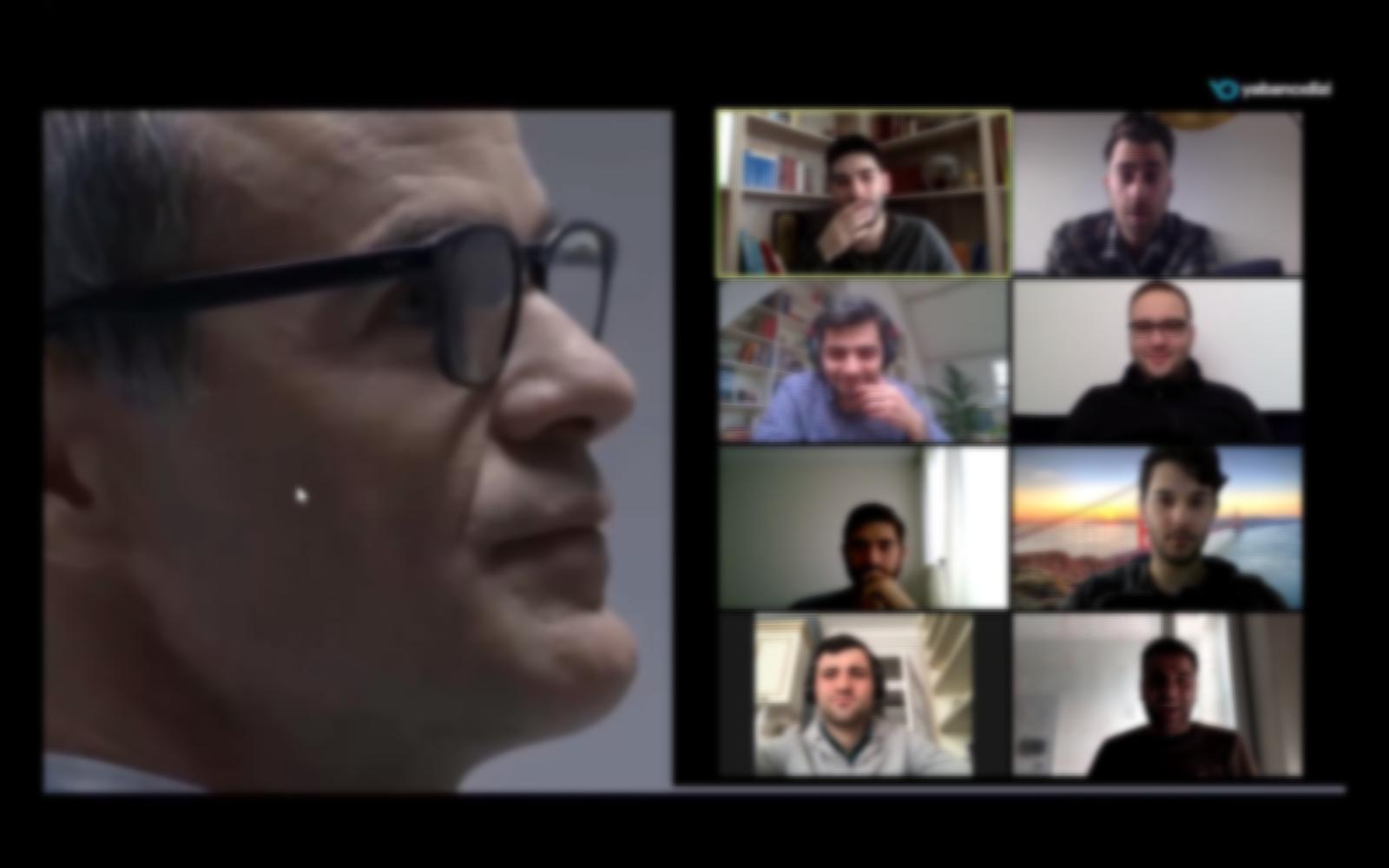Welcome to Cine Community, an empowering initiative aimed at addressing the trend of radicalization among Muslim youth in the Netherlands. Recent tensions have highlighted the vulnerability of second and third-generation Muslim youth to recruitment for violent jihad, as reported by the AIVD, the Dutch General Intelligence and Security Service. Our campaign seeks to understand and counter this phenomenon by focusing on young people aged 16-21 in Den Haag, Delft, and Rotterdam.
With the goal of fostering peaceful intercultural and interfaith dialogue, as well as promoting human rights and democratic values, Cine Community provides alternative narratives to challenge extremist ideologies. Through a series of four movie sessions and debates held over the course of a year, we engage high school pupils and students in thought-provoking discussions.
The movies chosen for the Cine Community Campaign include:
Black Mirror S03E05: "Men Against Fire"
Experimenter: The Stanley Milgram Story (2015)

These thought-provoking films explore various aspects of human behavior, conformity, and the consequences of unchecked power. By watching and discussing these movies, participants gain a deeper understanding of societal dynamics and the impact of radicalization.
A total of 54 individuals, consisting of 20 females and 34 males, actively participated in the Cine Community Campaign. The program primarily attracted participants from Den Haag and Rotterdam, with limited attendance from Delft and Leiden. To expand our reach, the "STIP" student platform played a vital role in promoting our programs to its members and followers, ensuring broader engagement and participation.
This campaign has been a learning experience, emphasizing the importance of cinema in raising awareness and fostering critical thinking among young people. By addressing the underlying factors of radicalization, such as integration challenges, feelings of exclusion, and discrimination, we strive to create a society that embraces diversity and rejects extremist ideologies.
Methodology
In planning our cinema activities for the Cine Community project, we incorporated the "design thinking" method along with Dialogical Self Theory (DST), which has been a longstanding framework in our approach.
DST, as a bridging theory, helps us understand radicalization as a complex and dynamic phenomenon involving individual and collective positioning. It allows us to explore how radicalization processes manifest as different "I-positions" within the self and the "society of mind." This framework emphasizes the person as a motivated storyteller, constructing narratives from various perspectives and deciding what to include or exclude. It introduces the concept of a "multi-voiced self" with different voices positioned within the person's society of mind.
Within this framework, our movie sessions provide opportunities for participants to engage in dialogues with their own voices, including radical or moderate positions, as well as external voices prevalent in their cultural contexts. By inviting dialogic conversations and exploring different religious positions and voices, such as "I as a radical" and "I as a moderate Muslim," we aim to create space for critical reflection and the exploration of diverse perspectives.
Engaging in dialogue with multiple I-positions and voices supports participants' capacity for self-reflection, decision-making, and the recognition of moments of dissonance. It also helps in understanding the roles they play in daily life and comparing them with the roles portrayed in the movie sessions. This fosters self-awareness and reflection on positioning in different contexts.
Design Thinking also played a crucial role in the construction of our process. We watched nearly 20 films related to the subject matter, taking notes and analyzing each movie's relevance to the project's objectives. We evaluated the sensitivities of our target group and made choices considering their perspectives, sometimes applying censorship to certain parts that could cause discomfort.
By combining Design Thinking and Dialogical Self Theory, we fostered a creative and reflective environment, empowering youth to critically engage with the films, challenge assumptions, and develop their own conclusions.
Discussion and Conclusion
The Cine Community campaign proved to be a valuable initiative in addressing the trend of radicalization among Muslim youth in the Netherlands. Through film events, debates, and discussions, the project successfully engaged participants and provided alternative narratives to challenge extremist ideologies.
The relevance of the selected movies, such as "Experimenter" and "Black Mirror S03E05: Men Against Fire," contributed to the campaign's effectiveness. Participants expressed their appreciation for the informative sessions and the opportunity to expand their general knowledge on the subject.
Efficiency played a crucial role in the campaign's success, with careful film selection, analysis, and tailored presentations. Despite the challenges posed by the online format, the project team adapted effectively, expanding their reach and experimenting with new tools.
The impact of the campaign extends beyond the immediate participants, with social, economic, and environmental changes observed, both intended and unintended. The corona crisis presented additional difficulties, but the project's flexibility and crisis management strategies allowed for continued progress.
The sustainability of the Cine Community campaign is evident through the high level of interest and commitment demonstrated by participants. The positive feedback received and the desire for future programs indicate the potential for ongoing success.
Overall, the campaign's lessons learned underline the power of cinema in raising awareness, fostering critical thinking, and providing a platform for dialogue. By addressing the complex issue of radicalization and engaging youth in meaningful discussions, the Cine Community initiative contributes to building a society that embraces diversity, rejects extremist ideologies, and promotes peaceful intercultural and interfaith dialogue.
The Cine Community campaign serves as a promising model for future projects aiming to combat radicalization and promote understanding, tolerance, and respect among young people. Through continuous adaptation and a focus on relevant content, this initiative has the potential to make a lasting impact on the lives of participants and society as a whole.